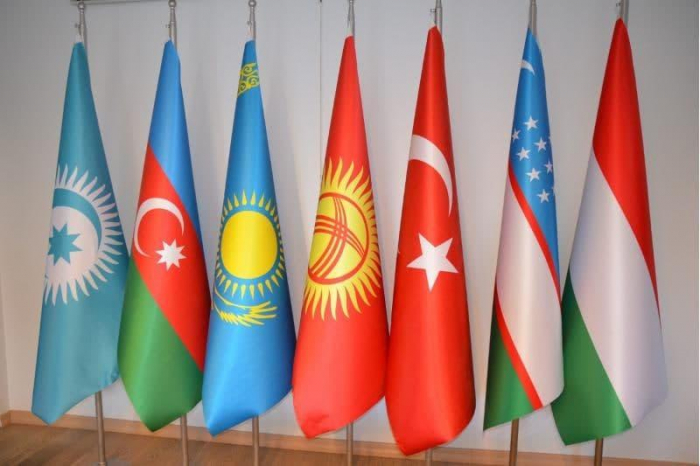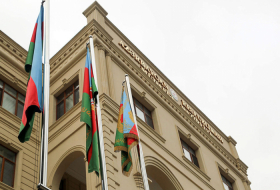In the snap presidential elections held on Feb. 7, Azerbaijani President Ilham Aliyev secured his reelection for a seven-year term. Prior to the elections, in a televised address to the Azerbaijani nation, he emphasized the need to set new national goals now that Azerbaijan has resolved the Karabakh conflict. Aliyev called for a societal dialogue to shape these objectives. Following his reelection, the president outlined his domestic and foreign policy priorities during the inauguration ceremony. The president emphasized the importance of addressing issues pertinent to the Organization of Turkic States (OTS) and global security, including climate change, fighting Islamophobia and addressing neocolonialism. These initiatives signify Azerbaijan's commitment to advancing its role in regional and international affairs.
President Aliyev's remarks underscore the shifting geopolitical dynamics in the wake of the Russia-Ukraine war, where regional states face mounting pressure to align with either the West or Russia. The EU's granting of candidate status to Georgia and Armenia's accelerated pivot toward the West during Armenian Prime Minister Nikol Pashinyan's tenure exemplifies this trend. Amid Russia's efforts to maintain influence over Armenia, it also seeks to engage Azerbaijan in organizations like the Collective Security Treaty Organization (CSTO) and the Eurasian Economic Union (EEU).
However, Aliyev's assertion of "clear dividing lines in the South Caucasus" indicates Azerbaijan's strategic independence and its reluctance to be coerced into alignment with either bloc. Azerbaijan's recent efforts to bolster ties with the OTS signal a broader strategy of diversifying alliances and strengthening regional cooperation. While traditionally focused on cultural, economic and transportation issues, President Aliyev's proposal to expand OTS cooperation to include military defense and defense industry matters reflects a proactive approach to addressing regional security challenges. This initiative, as outlined in the Samarkand Declaration of 2022, demonstrates Azerbaijan's commitment to enhancing collective defense capabilities within the Turkic world.
Aliyev's call for strong defense cooperation
Aliyev's reiterated emphasis on the necessity of defense cooperation was voiced at the Astana summit in 2023 and elaborated upon during the international conference organized by the AİR Center and ADA University in Baku in November of the same year. "I think that we need to have a very close defense cooperation in the defense industry, joint manufacturing, joint training of military servicemen, joint efforts with respect to the protection of our borders," he said.
Aliyev's prioritization of the OTS in Azerbaijan's foreign policy reflects strategic considerations beyond conventional geopolitical factors. The aftermath of the Second Karabakh War saw Azerbaijan facing unjust decisions from several Western-based organizations. For many years, both Western-based organizations and other regional organizations lost credibility in Azerbaijani society, primarily from perceptions of unfair treatment regarding the Karabakh issue and biased support for Armenia during the Second Karabakh War. Instances such as the European Council's decision to freeze the mandate of the Azerbaijani delegation have only reinforced these sentiments, prompting debates about potential withdrawal from the council. The prevailing sentiment in Azerbaijan reflects disillusionment with the expectation that membership in these organizations would lead to impartiality on the Karabakh issue. Instead, perceived biases have fueled skepticism about the utility and relevance of continued engagement.
The OTS has emerged as a crucial ally for Azerbaijan, providing unwavering support during challenging times and fostering closer diplomatic ties among member states. This steadfast solidarity has not gone unnoticed by the Azerbaijani public, leading to a growing sentiment of cooperation and social support for OTS initiatives. Recent geopolitical shifts have further underscored the significance of the OTS in regional and global affairs. The ongoing Russia-Ukraine war has heightened the importance of the Turkic states as a vital transportation corridor between East and West, particularly amid instability in the Red Sea region. Additionally, the OTS's prominence in the quest for alternative energy sources in Europe highlights its growing relevance in addressing pressing global challenges.
The ongoing geopolitical power struggle among major players like the West, Russia and China has intensified the focus on the geography of the OTS. Aliyev views this landscape as ripe for becoming a focal point in the emerging global order. He sees ample potential within the Turkic states to consolidate their resources and capabilities and emerge as a significant center of power. Aliyev highlights the expansive geography, abundant land, formidable military prowess, robust economies, rich natural resources, vital transportation routes, young populations and shared ancestral ties as key factors underpinning this potential. However, he stresses the imperative for member states to unite their efforts toward this shared vision.
Fighting Islamophobia and neocolonialism
The prioritization of combating Islamophobia in Azerbaijani foreign policy stems from two crucial factors extending beyond the nation's Muslim-majority demographic. Firstly, Azerbaijan places significant value on the unwavering support extended by the Organisation of Islamic Cooperation (OIC) throughout the prolonged occupation and during the Second Karabakh War, as well as in the post-war diplomatic negotiations. Secondly, the increase in political attacks on Azerbaijan, mainly based on Islamophobia, highlights the need to take preventive measures to counter such prejudices. The Armenian diaspora, particularly in the West, has sought to exploit Islamophobic narratives, falsely framing the conflict as a struggle of a Christian minority against a Muslim majority in the Caucasus. Despite ongoing normalization efforts between Armenia and Azerbaijan, according to President Aliyev, these attacks will become more frequent in the future as Azerbaijan has achieved more by liberating its lands from occupation.
The geopolitical landscape in the South Caucasus has become increasingly complex, with certain states eyeing the region for imperial ambitions. France, in particular, has sought to capitalize on the fallout from the West-Russia conflict following the Russia-Ukraine war, positioning itself to assert influence in the postwar era. Emmanuel Macron's France, having faced setbacks in its neocolonial pursuits in Africa, saw an opportunity in Armenia as a potential foothold in the South Caucasus. Exploiting the diplomatic negotiations between Armenia and Azerbaijan, France attempted to assert its influence and burden Azerbaijan in the process. The emergence of this neocolonial agenda prompted Azerbaijan to align itself with countries and organizations opposing France's imperial ambitions. In response, Azerbaijan hosted an international conference in Baku on Oct. 20 titled "Neo-colonialism: Human Rights Violation and Injustice," where President Aliyev's message underscored the importance of combating neocolonialism and upholding human rights. Anticipating continued challenges from France, Azerbaijan has prioritized supporting cooperation with French neo-colonies and advocating for their liberation as a key foreign policy objective. By forging alliances with like-minded partners and amplifying voices against neocolonialism, Azerbaijan seeks to counterbalance French influence and promote a more equitable global order.
With this significant milestone achieved, Azerbaijan's diplomatic burden has been alleviated, allowing for a reassessment of alliances and partnerships forged during the Karabakh War. Countries and organizations that stood by Azerbaijan's just cause during and after the conflict have assumed a prominent position in Azerbaijani foreign policy. Aliyev highlighted the crucial role played by allies such as the OIC and the Non-Aligned Movement, acknowledging their steadfast support in his inauguration address. However, amid these acknowledgments, Aliyev has outlined an overarching priority for the new period: the acceleration and strengthening of ties with the OTS. Recognizing the strategic importance of the OTS and its potential to serve as a powerful force for regional cooperation and solidarity, Azerbaijan is poised to prioritize collaboration within this framework. By intensifying efforts to deepen cooperation within the OTS, Azerbaijan aims to leverage the collective strength and resources of Turkic nations to advance shared interests and address common challenges.
In his 2018 inauguration speech, Aliyev underscored the importance of cooperation with a diverse range of international organizations, highlighting the significance of engagement with entities such as the U.N. General Assembly, the Non-Aligned Movement, the OIC and various European bodies. However, in his address following the February 2024 elections, Aliyev's messaging was notably centered on the OTS, signaling a pronounced shift toward prioritizing relations within the Turkic world. By declaring, "Our family is the Turkic world and we have no other family," he unequivocally prioritizes solidarity and collaboration within the Turkic community above all other international affiliations.
Absolutely, prioritizing the OTS in Azerbaijani foreign policy does not imply isolation from other global actors. The president's participation in events like the Munich Security Conference underscores Azerbaijan's commitment to engaging with a wide range of international partners. Indeed, for the OTS to become a significant global actor, member states must cultivate strong relations with other global actors. Collaboration with countries and organizations beyond the Turkic world is essential for enhancing the OTS's influence and effectiveness on the global stage.
AzVision.az
More about:
















































